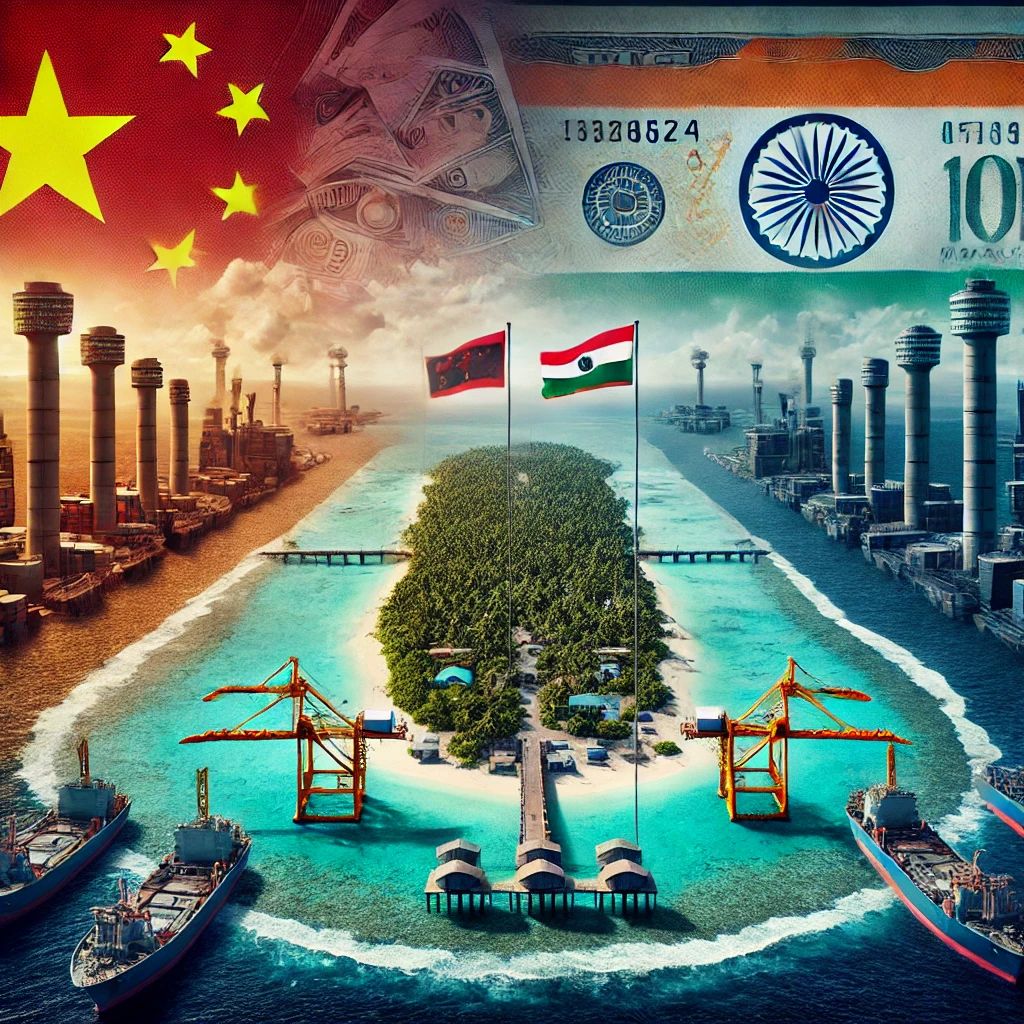
- As of August 2024, the Maldives held foreign currency reserves totalling $437 million, which would only cover approximately six weeks of import expenditures.
- The Maldives owes China around $1.3 billion and India approximately $130 million. In the absence of critical financial aid from India, the ramifications of the Maldives failing to meet its Sukuk payment would be severe, potentially impeding access to international capital markets.
- China’s loans have predominantly financed infrastructure projects associated with its Belt and Road Initiative, contributing to Beijing’s expansion of strategic influence in the Indian Ocean.
The Maldives, renowned for its exquisite resorts and serene beaches, is currently facing a significant debt challenge while endeavouring to fulfil its obligations to its two principal creditors: India and China. Maldives President Mohammed Muizzu is confronted with a critical test as he steers his country through this complex economic and geopolitical juncture.
As of August 2024, the Maldives held foreign currency reserves totalling $437 million, which would only cover approximately six weeks of import expenditures. The nation is anticipated to encounter debt servicing costs ranging from $600 million to $700 million in 2025, exceeding $1 billion in 2026. The Maldives owes China around $1.3 billion and India approximately $130 million.
India to the Rescue!
During his bilateral visit, Maldives’ President met and discussed the issue with Indian Prime Minister Narendra Modi in New Delhi on October 7. He sought essential financial support to avert a default on a $25 million bond payment. According to Reuters, India has sanctioned a $400 million currency swap agreement, delivering much-needed assistance to the debt-laden country with a population of half a million to facilitate short-term liquidity.
The Maldives’ debt predicament is intertwined with Sukuk bonds, a distinct form of financial instrument recognised as an Islamic bond. In contrast to conventional bonds, Sukuk represents ownership in a tangible asset or a pool of assets, with returns derived from the asset’s revenue rather than from interest. If the Maldives default on its Sukuk debt, it would mark Sukuk’s first sovereign default event.
In the absence of critical financial aid from India, the ramifications of the Maldives failing to meet its Sukuk payment would be severe, potentially impeding access to international capital markets, undermining investor confidence, and plunging the Maldives deeper into economic turmoil.
While the recent assistance from India may have averted an immediate default on the Maldives’ Sukuk debt, the country’s broader economic challenges persist unresolved, with substantial debt repayments looming in the years ahead.
China’s loans have predominantly financed infrastructure projects associated with its Belt and Road Initiative, contributing to Beijing’s expansion of strategic influence in the Indian Ocean. Conversely, India regards the Maldives as a pivotal component of its regional security and has extended financial aid to counteract China’s escalating influence.
References:
